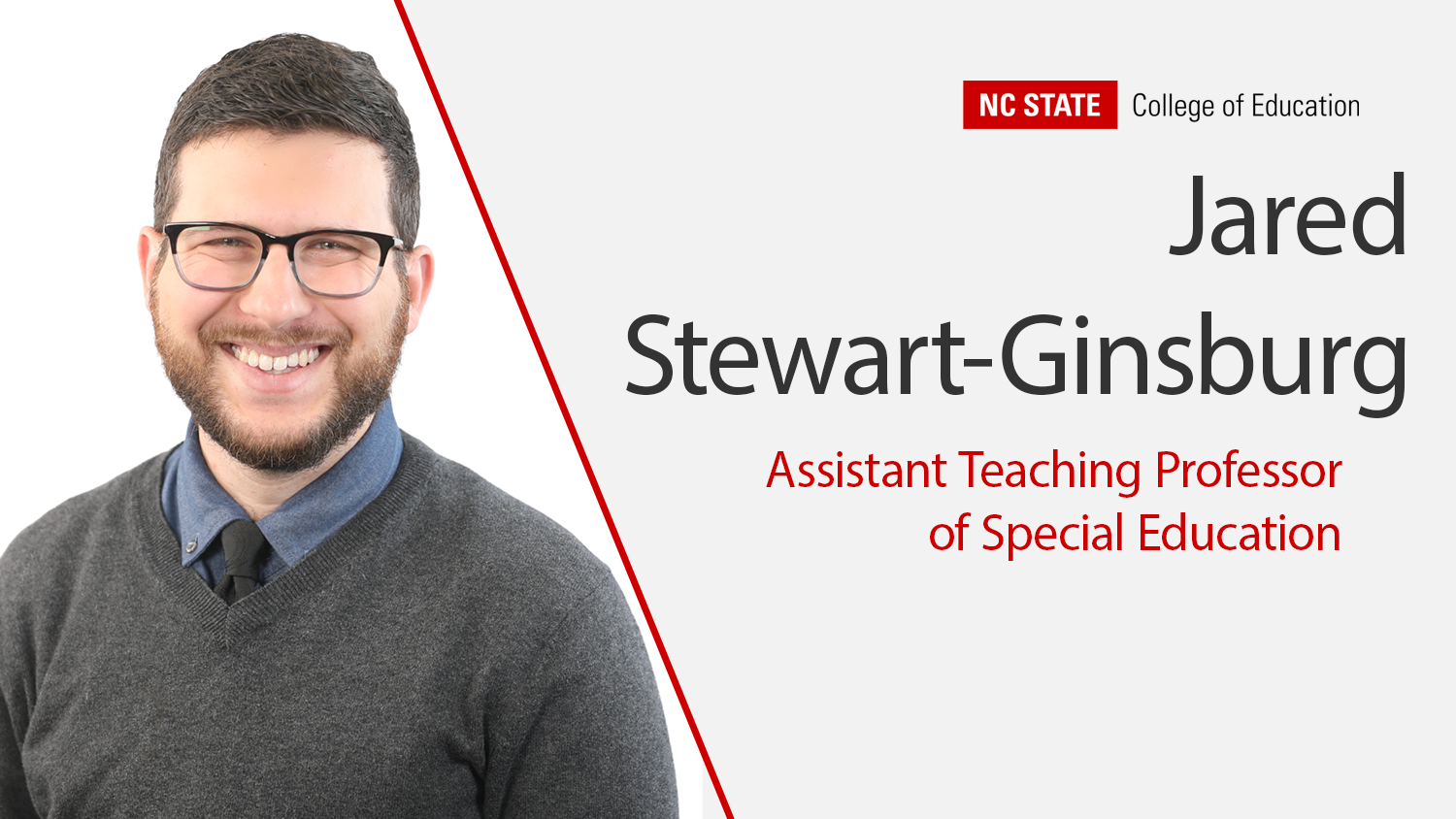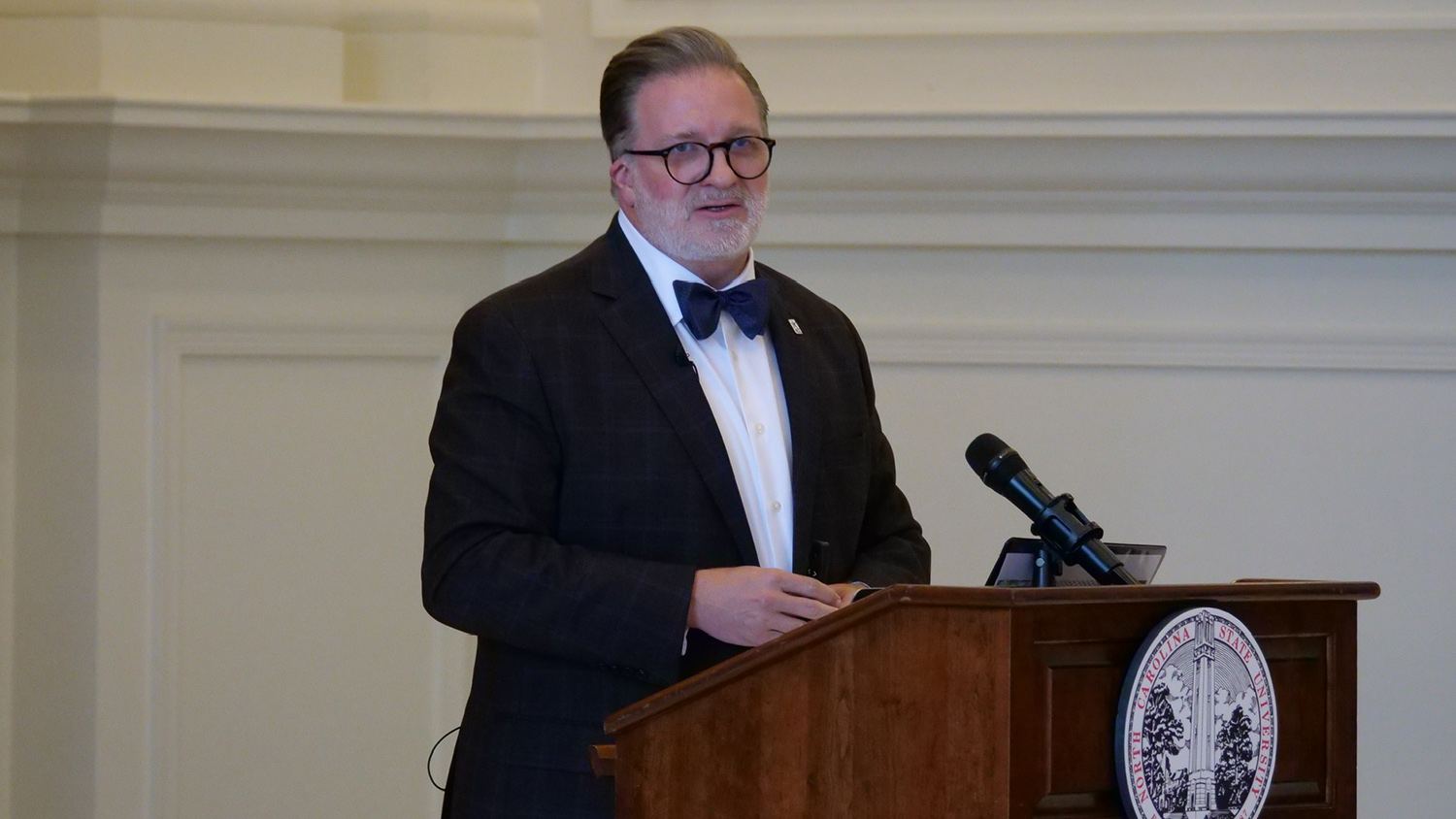Jared Stewart-Ginsburg: ‘I Hope My Students Learn That Teaching Requires Reflection, Not Perfection’

Jared Stewart-Ginsburg will join the NC State College of Education in the 2023-24 academic year as an assistant teaching professor of special education.
He previously served as an assistant professor in the School of Education at Francis Marion University, a classroom teacher in Florida and as a family resource coordinator supporting parents raising children with disabilities in North Carolina.
Learn more about Stewart-Ginsburg below:
Why did you choose a career in education?
I wasn’t considering a career in education (I wanted to be a journalist), but when I was an undergraduate student, I volunteered as a tutor working with elementary-age students. At first, it was just for community service. But, I quickly realized how much I enjoyed finding ways to make content relevant and accessible, building relationships with students and families and seeing students’ growth. My teachers made a remarkable difference in my life, and I hope to make a similar contribution for my students.
What inspired you to pursue a doctoral degree?
After a few years of working with students and families as a teacher and family resource coordinator, I had a lot of questions about how to best support students with disabilities and their families. I enrolled in my master’s degree program to add tools to my toolbox and learn more evidence-based practices. When I finished, I felt more confident and competent, but realized I wanted to share these strategies and better prepare professionals to support students with disabilities in the classroom and community. To do that well, I needed to hone my research and college teaching skills, and I knew the doctoral program was the best way to do that.
What are your research interests?
Representation matters: Researchers consistently find that students who see themselves represented in their teachers have better academic, behavior and mental health outcomes. The vast majority of special education teachers are white. Perhaps as a result, special education teachers from minoritized backgrounds often encounter unique barriers during their preparation programs and once they begin teaching. Through my research and teaching, I hope to explore effective strategies to prepare, support and empower a diverse, equitable, resilient special education teacher workforce. I have also explored strategies for increasing community participation of students with disabilities, so that inclusion doesn’t end when the school day does.
What sparked your interest in those topics?
I felt very supported through my master’s and doctoral programs, which was largely due to the importance placed on faculty and peer mentoring. This support made all the difference as a student and professional, and I hope to provide the same support to our students.
What is one moment or project in your academic career that you are particularly proud of?
Last spring, a student approached me with a situation from her internship placement and asked for my advice on how to best navigate it. At the end of the semester, she told me that while she initially rolled her eyes at what I said, the advice helped her succeed in her internship experience. I am most honored when students ask for advice or strategies, especially if it’s after they have graduated.
What is your teaching philosophy?
I aspire to “good and just teaching,” whereby teachers are agents of equity and use their instruction to enact change. This involves teaching both a required body of knowledge (what we call evidence-based practices in special education) while teaching students to critically examine these practices and confront the absoluteness of these practices. I view teaching as a dynamic, ongoing exchange between instructor and student. I try to emphasize “once my student, always my student” and find ways to support my students after they finish their time in the program. I hope to share knowledge of effective strategies while learning from and with them through their questions, insights and passion.
What do you hope your students learn from you?
Along with effective, equitable strategies, I hope my students learn that teaching requires reflection, not perfection. It is okay to make mistakes, reflect on and grow from these experiences. Teachers must offer themselves the same kindness and patience they offer their students.
What do you believe makes someone an extraordinary educator?
Extraordinary educators embody a caring community. Extraordinary educators, first and foremost, show they care about their students, families, colleagues, school and community. Extraordinary educators surround themselves with a community of people who will challenge them to consistently learn, reflect and aspire to be their best selves. To paraphrase a proverb, it takes a village to be a teacher.
- Categories:


